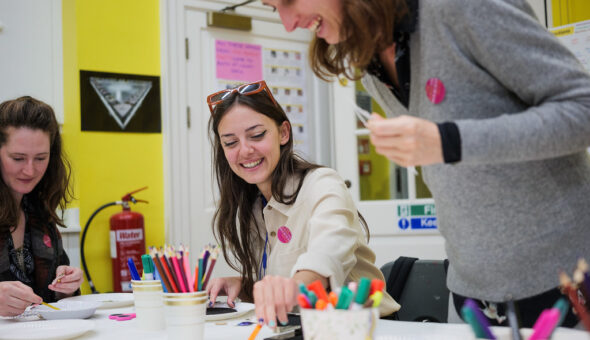As the new school term begins, many parents in the Bath and local area are weighing up whether now’s the right moment to give their child a smartphone, with local 'smartphone free' parent groups highly active as parents seek support and advice. A new University of Bath research project is working to develop guidance that could shape future evidence-based policy in this space.
University of Bath researchers are part of a government-commissioned initiative - working with the University of Cambridge and several other UK universities - to dig deeper into how smartphones and social media affect young people’s lives.
This research will review and summarise existing studies on how smartphones and social media impact various areas of child development: mental health, wellbeing, physical health, lifestyle, health behaviours, and school performance. One key aim is to improve how research is conducted—in particular, by identifying the most effective methods and data sources to uncover causal links rather than just correlations. The scope includes rapidly evolving online habits and ensuring that vulnerable groups—like LGBTQ+ youth or those with special educational or mental-health needs—are represented in future studies.
Over the next two to three years, this foundational work intends to recommend how future studies can deliver robust, causal evidence on the impact of smartphone and social media use on children’s development.
As Secretary of State for Science, Innovation and Technology Peter Kyle put it, the online world presents enormous opportunities for young people—but their safety and wellbeing must lead the way, and it’s crucial government decisions are based on the best available evidence.
See more about the study happening at Bath here.
What does this mean for parents of school children in Bath this September? Here are my thoughts:
1. Start with boundaries, not the device
Even before your child has a smartphone, talk about what responsible use would look like: limits on screen time, rules about phones in bedrooms, education about appropriate online behaviours, and when it’s okay to be offline.
2. Think of it as a trial, not a permanent decision
If you do decide to give your child a phone, frame it as a 'learning period'. You can agree to review how it’s going after the first term and make changes together if needed.
3. Model healthy habits yourself
Children notice how we use our devices. If you can, try to show balance - like putting your phone away at dinner or leaving it outside the bedroom at night.
4. Use gradual exposure
Rather than a top-end smartphone straight away, some families start with a basic handset for calls and messaging, or a smartphone with parental controls, adding features as trust grows.
🗣 Conversation Starters with Your Child
-
“Why do you feel you need a phone right now?”
This helps you understand whether their reasons are about safety, fitting in with friends, or wanting to explore social media. -
“How do you think having a phone would change your daily life?”
Encourages your child to reflect on both the positives and the challenges. -
“If we agree to a phone, what rules should we set together?”
Involving them in setting limits can make them more likely to stick to them. -
“How would you handle it if someone posted something unkind online?”
Opens up space to talk about resilience and safe behaviour before problems arise.
📌 The takeaway: Until new research such as this current project at the University of Bath gives us stronger evidence, the best approach is open conversation, clear expectations, and flexibility. Remember - you’re not locking in a forever decision. You’re helping your child learn healthy digital habits step by step.
Wishing all Bath and North East Somerset families a calm, confident transition back to school this term!
Respond



